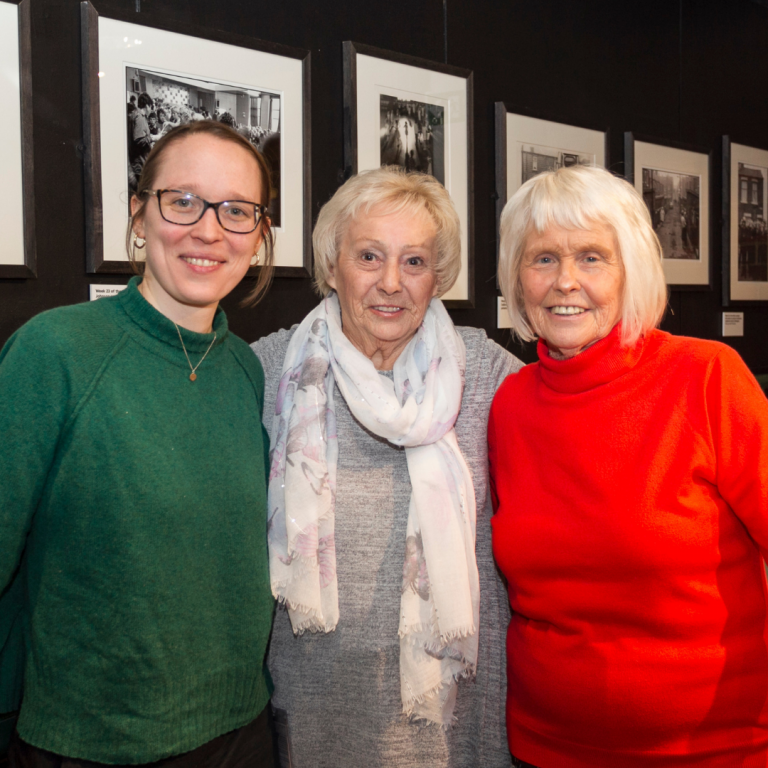Dr Florence Sutcliffe-Braithwaite awarded prestigious Philip Leverhulme Prize
27 October 2020
Congratulations to Dr Florence Sutcliffe-Braithwaite who is one of four researchers at UCL to be awarded the prestigious Philip Leverhulme Prize. We chatted to Florence about her research and future plans.
Hi Florence – congratulations on being awarded a Philip Leverhulme Prize for your research, you must be thrilled! Can you tell us a bit about where you began with your research?
When I was an undergraduate I was very interested in Margaret Thatcher and that was where I began my research as a postgraduate, examining Thatcherism through a study of the development of social policy in the Thatcher years. That got me interested in the question of what Thatcher thought about social class and how it was changing in Britain, and my PhD project – which subsequently became my first book, Class, Politics and the Decline of Deference in England, 1968-2000 – zoomed out to look at popular understandings of social class in Britain from 1968 to 2000, and compare popular and political languages of class.
That sounds super interesting! What did you move on to after that?
Around the time I was finishing this research, I was talking to Dr Natalie Thomlinson about the experiences of women in the miners’ strike of 1984-5. Natalie wrote her PhD on the subject of race in the post-1968 Women’s Liberation Movement, and the subject of women in the strike brought together her interests in feminism and gender with mine in class and labour politics – plus it’s one of the most significant and dramatic conflicts of the 1980s – and so we decided to work on it together. A few years later, we got AHRC funding, which enabled us to work with Dr Victoria Dawson as well, on a big oral history project, speaking to women from coalfields in Scotland, South Wales, Yorkshire, Nottinghamshire, Kent, and elsewhere, about their experiences in the strike.

Florence with two of the project’s interviewees at the special exhibition launch in February 2020
As part of your Women and the Miners’ Strike Project, you set up an online exhibition – what can people explore there?
Yes, we have been lucky enough to work with the National Coal Mining Museum for England as part of the research project, and we’ve curated a special exhibition there on the subject of ‘Women in the Miners’ Strike’, which opened in February this year. We also created an online version of the exhibition, so that those who can’t travel to Wakefield to see it in person (which is, of course, now difficult!) can listen to excerpts from some of our interviews and watch the short film we made with some of our interviewees. We also wrote an essay to accompany the exhibition, which is also online – you can see it all at www.coalfield-women.org.
The exhibition examines the activism that many miners’ wives undertook to support the 1984-5 strike, as well as the really important work they did in the home, to keep their families going on really tiny budgets and offer emotional support to husbands and sons. And it also touches on the experiences of women in Nottinghamshire, where the majority of miners kept working through the strike.
And what are your future research plans?
I’m currently co-authoring a book with Natalie Thomlinson on the research we’ve done on women’s experiences in the miners’ strike – drawing on many of the interviews that are in the exhibition – which will be published by Oxford University Press. So at the moment we’re going through many of our interviews again, as well as all the archival material we’ve gathered from all around the country, and drawing together all the strands of the research, which is really exciting.
Undertaking this research, and in particular interviewing women from so many of Britain’s coalfields, has prompted Natalie and me to think about the importance of deindustrialisation in shaping Britain in the late twentieth century, and in particular, the way that changes in employment patterns have interacted with changes in gender roles. I’ve also started working with two colleagues from UCL’s Bartlett School of Planning, John Tomaney and Lucy Natarajan, on a small study in a village called Sacriston in County Durham – also an ex-mining village – examining the historical development of the village and the community, economy and social infrastructure today. This is, of course, a very important issue in contemporary politics, with the Conservatives talking about “levelling up” and Labour trying to develop a new economic model that will be more geographically balanced. We’re working on the project with partners in the area including Redhills, the home of the Durham Miners’ Association, and we’re hoping to develop this into a bigger project which can have a lasting impact in the area. So I’ll be continuing to work on the topics of class, gender and politics, and focusing a lot on deindustrialization and its impacts on Britain.
 Close
Close

